Special Session: IoT, AI Methods, and Applications in Semantic Communication, Signal Processing of Image Recognition, Health Diagnosis for UAV, Satellite Communication, Power System, Medical Crossover
With the rapid development and cross-integration of the Internet of Things (IoT) and artificial intelligence (AI) technologies, IoT can integrate monitored entities, wireless communication, AI, signal processing, and health status assessment into an intelligent network system. Therefore, advanced IoT, MIMO and AI technologies are widely used in the fields of unmanned platform, structure, power system, and intelligent medical, such as IoT network protocols, MIMO based wireless communication security, intelligent signal processing of terminal-cloud-edge collaboration, unknown class recognition in small sample scenarios, AI image processing and intelligent medical system, and other applications. This special session focuses on the methods and applications of IoT, MIMO and AI in semantic communication, signal processing of Image recognition, Health Diagnosis, etc, shares new ideas and achievements, and discusses the current challenges and possible solutions in these fields with relevant experts, scholars, and engineers around the world.
This topic focuses on various wireless communication technologies and signal processing technologies related to IoT and artificial intelligence for industrial applications such as unmanned platforms, intelligent power, intelligent medical, intelligent fault diagnosis, etc. This topic not only focuses on the novelty of the relevant technical methods in these application areas, but also focuses on the practicability and value of the application of the relevant methods in the industrial field. Therefore, it is necessary to construct a special topic to provide a platform for scholars and engineers to explore theoretical methods and engineering applications in these specialized fields, and to promote the industrial application of advanced theoretical methods.
Related Topics for this Session:
- MIMO and AI Methods in Semantic Communication
- Intelligent networking methods such as distributed resource allocation and routing
- Intelligent anti-interference method based on deep learning for Adhoc network
- Advanced Edge Computing Approaches for IoT
- AI-based recognition method for unknown classes in small-sample scenes
- Intelligent patrol of terminal-cloud-edge collaboration for UAV in the power system
- Application of advanced IoT and AI technology in smart power grid
- Application of AI model in intelligent medical
- Application of intelligent image recognition in power system, structural diagnosis, automatic driving, and intelligent medical
Important Dates:
Submission Deadline: March 25, 2026
Notification: April 25, 2026
Registration: May 10, 2026
Submit Method:
1, submit it via the link: http://www.easychair.org/conferences/?conf=icicsp2026 (after entering the link, click on the corresponding topic)
2, send your manuscript to icicsp@vip.163.com with subject "Submit+Special Session-6+Paper Title". (请通过邮件发送稿件,邮件题目:Submit+Special Session-6+Paper Title)
CHAIRMANS:
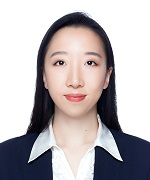
Yutian Wu received the B.E. degree in computer science and software engineering from Southeast University, China, in 2017, the M.E. and Ph.D. degree from Waseda University, Japan, in 2018 and 2022. She has published more than tens of academic papers in important academic journals and conference. Since 2023, she has been a lecturer at School of Automation and Electrical Engineering, University of Science and Technology Beijing, China. She has presided over the scientific research program supported by Youth Program of National Natural Science Foundation of China, and is mainly engaged in theory of deep learning, computer vision and application of 3D scene understanding in autonomous driving system.
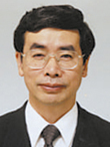
Harutoshi Ogai is a Professor of Information, Production, and Systems with Waseda University. He was born in Kitakyushu, Japan, and acquired the Ph.D. degree from Tokyo Institute of Technology. He was the director of the Automated Driving Joint Research Center of the Kitakyushu Industry-university-research Cooperation Association and Waseda University. His research interests include Process Control, Process Modeling and Simulation, Process Analysis and Data Mining, signal process, Automatic Control, and Bridge Diagnosis.
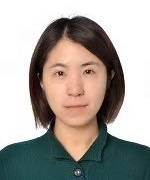
Dongmei Wu is an associate professor and master’ s degree supervisor at the School of Automation & School of Artificial Intelligence, Nanjing University of Posts and Telecommunications. She received Ph.D. from Waseda University in Japan. She focuses on key areas such as energy management and optimization for electric vehicles, scheduling and routing of logistics vehicles, path planning for UAV, and image processing. She is committed to the cutting-edge exploration of intelligent optimization and innovative applications.
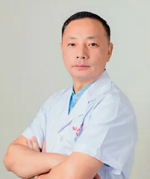
Richu Liang, Chief Physician (Neurosurgery) and Associate Professor, serves as the Director of the Neuromedicine Center at The Second Affiliated Hospital of University of South China. He holds multiple professional leadership positions including: Committee Member of the Neurosurgery Branch of Hunan Provincial Medical Doctor Association, Executive Member of Hunan Provincial Neurosurgery Professional Committee, Chairman of Hengyang City Neurosurgery Professional Committee, Vice Chairman of the Brain Metastasis Committee of Chinese Anti-Cancer Association, and Deputy Director of Hengyang Neurological Disease Research Center. With extensive clinical expertise spanning traumatic brain injury, intracranial tumors, cerebrovascular diseases, spinal disorders, and neurocritical care, He has performed over 5,000 neurosurgical procedures. His academic leadership includes presiding over two provincial-level research projects and directing a Key Laboratory in Hengyang City. He has authored 50 peer-reviewed publications in domestic and international journals. Notably, Dr. Liang has pioneered multiple innovative neurosurgical techniques that addressed critical technological gaps in Hengyang's neurosurgical practice.
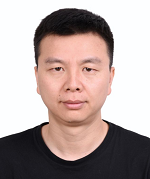
Haitao Xiao is an associate professor and doctoral supervisor at the School of Information and Communication Engineering, Xi 'an Jiaotong University, and a visiting researcher at Waseda University. He received the Ph.D. degree from Waseda University, Japan. He was selected into the "Overseas Talent Introduction Project of the International Exchange Program" of the Ministry of Social Security of China in 2018, and won the winning award of the "Source Creation Cup" Innovation and Creativity Competition of JKW in 2022. He is committed to the research of intelligent wireless communication and data computing fields such as smart antennas, intelligent mobile Ad hoc networks, intelligent reliable communications, satellite signal processing and positioning, intelligent fault diagnosis and damage diagnosis.
